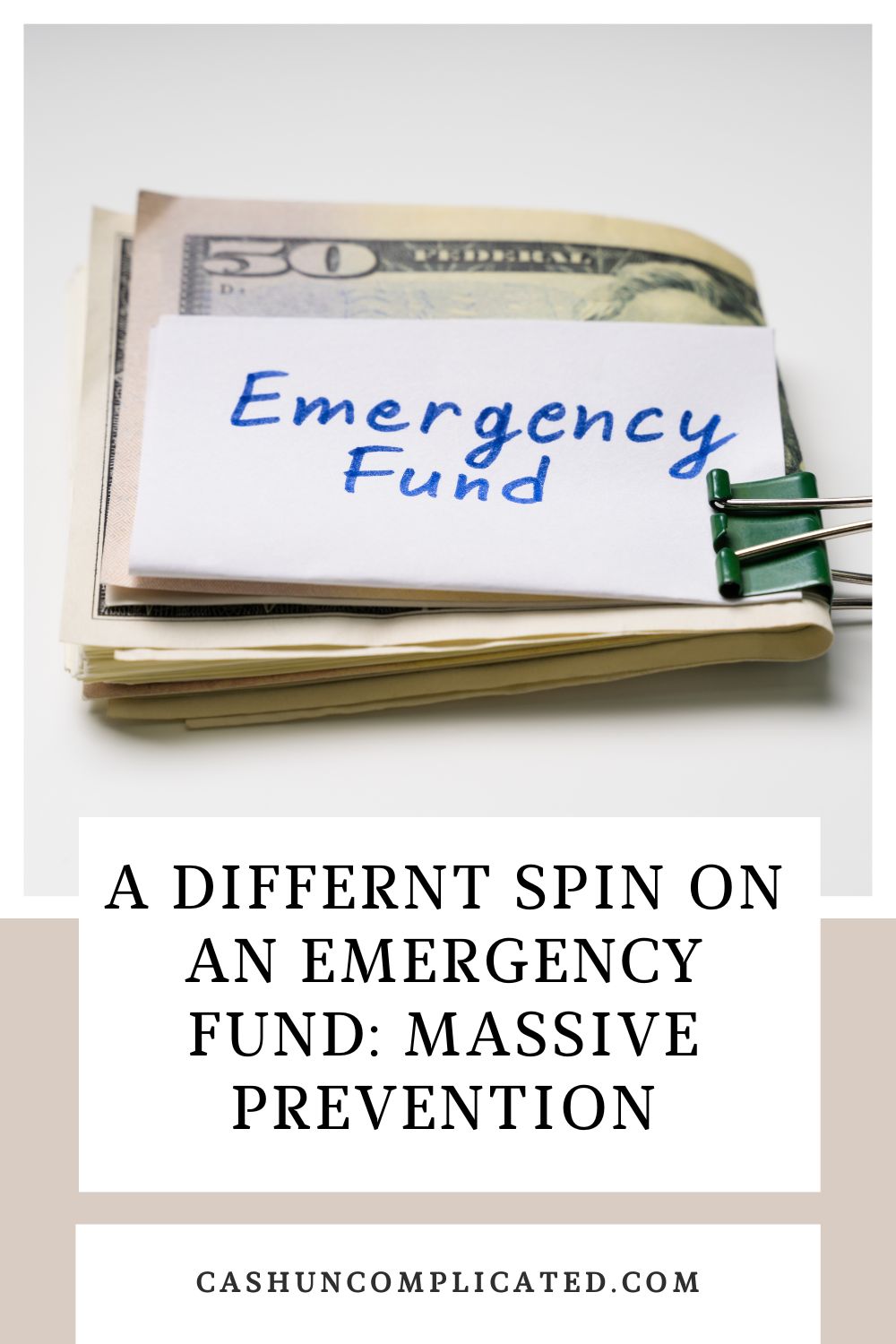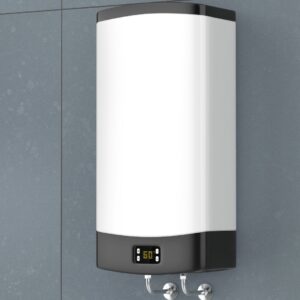Almost all personal finance and money experts recommend having an emergency fund. The standard advice is three to six months, and up to a year if your employment/business isn’t as stable. This post is going to be about a different spin on an emergency fund: prevention on select big-ticket items.
Beyond the Emergency Fund
An emergency fund is very necessary and I also recommend everyone have some reserves for the big unknowns. The car breaks down, an emergency procedure at the hospital, a large home repair–the list could go on forever. These things can, and do happen.
With that said, a very large number of emergencies can actually be prevented. This is where I encourage people to dive deeper into the subject, and not take all advice at face value.
Here’s an example of what I mean. A frequently cited example of an emergency is the car breaking down. The transmission going out, a major engine repair, or some other kind of costly mechanical failure. But what if you bought a new or used car in excellent condition with an extended warranty?
In this instance, the chances of having to come out of pocket for a significant amount of money are greatly reduced if the car is in excellent condition and there is an extended warranty.
Prevent Emergencies on These Items
Here are common items that with some prevention, don’t have to become emergencies.
Number 1: Cars
Up until earlier this month I drove an 18-year old used car with 235,000+ miles on it. Even though it’s been an exceptional car, any vehicle with that many miles is a risk for a major repair. Even though I think it could go another 100,000 miles plus without a big issue, it is a risk.
At the start of the month, I bought a new car (I normally recommend used, but in this case the tax credits brought down the price to a used car of the same make and model). The car came with a three year warranty and it’s brand new, so I’m covered for major repairs the next three years.
Having to spend a lot of money in the next three years on this particular vehicle is very unlikely because it’s new and under warranty. Anyone buying a car like this would be in the same situation.
Number 2: Roof
A leaky roof is definitely an emergency. Any delay in getting it fixed adds to the likelihood of more water problems like mold and dry rot. In most cases though, a roof can be repaired or replaced before it gets to the level of leaking.
There are many options to prevent roof issues like replacing the roof a couple years before the end of its useful life, getting scheduled inspections, and repairing any potential issues, etc.
There is no 100% guarantee that the roof will never leak, but you can greatly reduce those chances by taking preventative actions.
Number 3: Hot Water Heater
“The hot water busted and it’s leaking everywhere!” This is a problem and needs to be fixed asap. Just like with the roof, it can usually be prevented.
Scheduled inspections, replacing before the end of its useful life, monitoring for drips, etc. are all ways to prevent big failures and emergencies. So if you’ve got an old hot water heater that’s well past it’s life expectancy, it might be time to bite the bullet and get a new one before the problems start.
Number 4: Plumbing Issues
Much like the last few items on the list, there are strategies to minimize big plumbing issues. A regular visual inspection does wonders in preventing the big emergencies by detecting leaks faster.
I’m a completely untrained eye and the worst at DIY projects, but even someone like myself can visually inspect the plumbing under the sink and spot a leak or plumbing that looks like it’s in bad shape.
I’m limited in the sense that I’m not going into the attic or in the crawlspace under the house to inspect plumbing, but anyone can check out the surface level stuff.
Number 5: Healthcare
A large medical bill is a guarantee that you’re going to have to dip into the emergency fund. There are two things off the top of my head I can think of to keep these costs down.
The first is staying in good health to the best of your abilities. Eating healthy and exercising on a regular basis to start.
The second thing is making sure you are adequately insured. I’m not an expert in health insurance so you’ll have to do this research on your own. A few of the things I’d look for are deductible costs and then more predictable things like monthly costs and co-pays. For a few quick healthcare tips, check out this article on NerdWallet.
The idea is to avoid a major bill that’s going to eat away at your emergency savings and other money sources.
Number 6: Anything Insurance Can Cover
This is a broad category, but a necessary one. There are a lot of things that if all else fails–insurance can help cover. This includes cars, health (mentioned above), life, property, etc.
If you’re good at things like this, do the research yourself and pick the insurance that is best going to protect you. If you’re not so great, find an insurance agent who is.
Again, the idea is to prevent the really big costs so you’re not susceptible to large unexpected bills.
The Reality: There’s Always the Unknown
There are no guarantees in life. You can plan all you want, but it’s impossible to plan for everything. As Nassim Taleb writes about his book The Black Swan, there are always going to be events you can’t predict and come as a total surprise.
While I really like the idea of emergency prevention as outlined in this post, there is just no way to predict everything. I believe that following the suggestions in this post will prevent a lot– but I’m under no misconception that you can predict it all.
Which leads us to the next section about the solution.
The Solution: Prevent and Save
There are two things I know about money emergencies. Number one, some things that are predictable, such as the hot water heater breaking after many years.
The second thing I know is there is no way to predict absolutely everything. My solution is to prevent everything you can, and have an emergency fund for the rest. It’s a nice mix that will protect you in most circumstances.
Conclusion
I really like the idea of prevention. I’d rather fix a roof that’s got a year or two left of useful life than have to deal with a roof that is beginning to leak. Same with a hot water heater or failing pipes under the sink.
Recognizing that you can’t fix and prevent everything, I like to do as much prevention as possible and then keep a strong emergency fund as backup. It’s the best way I know to minimize emergencies, and keep from having to pull large amounts of cash from my savings.











